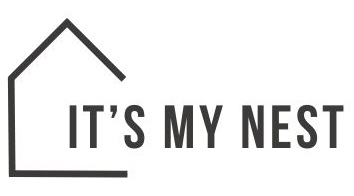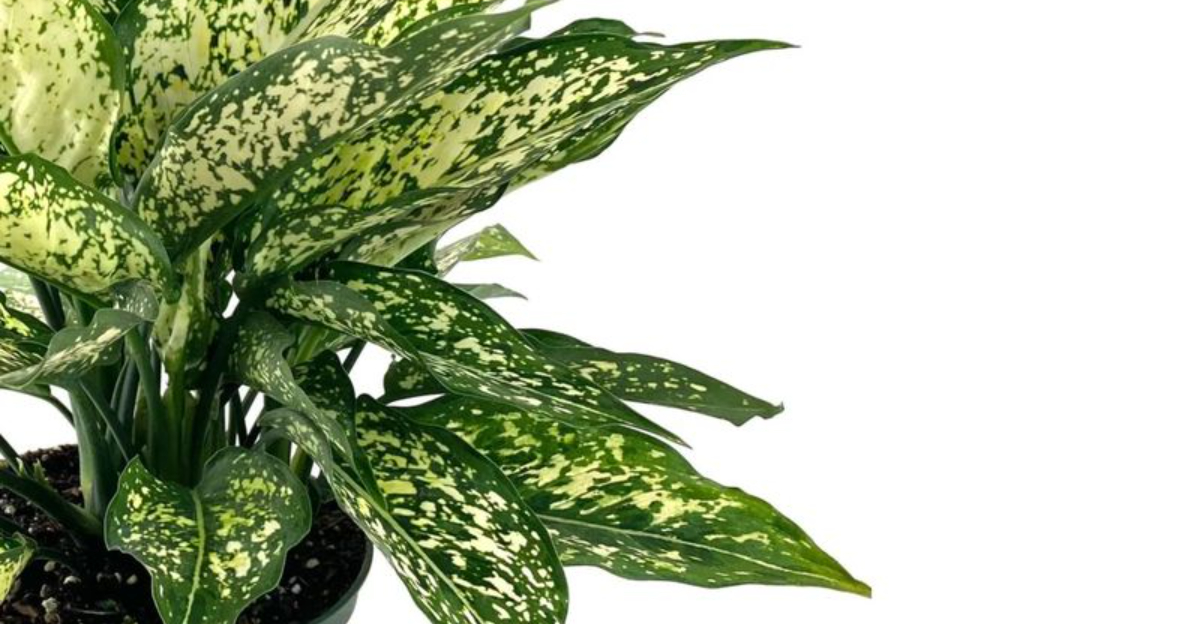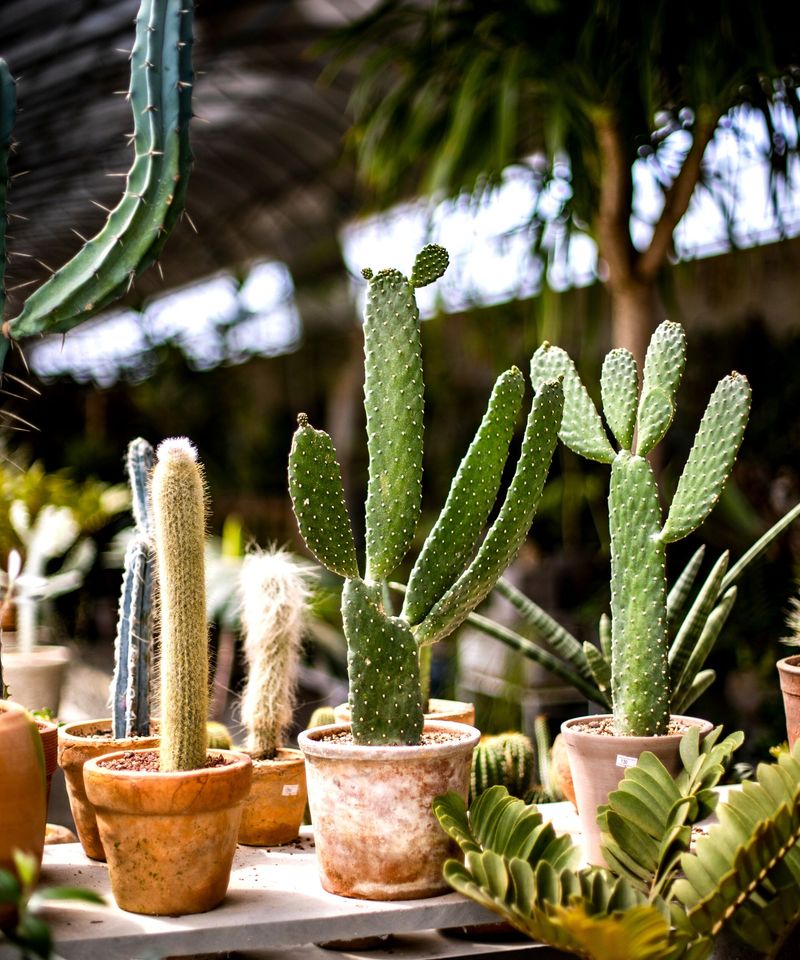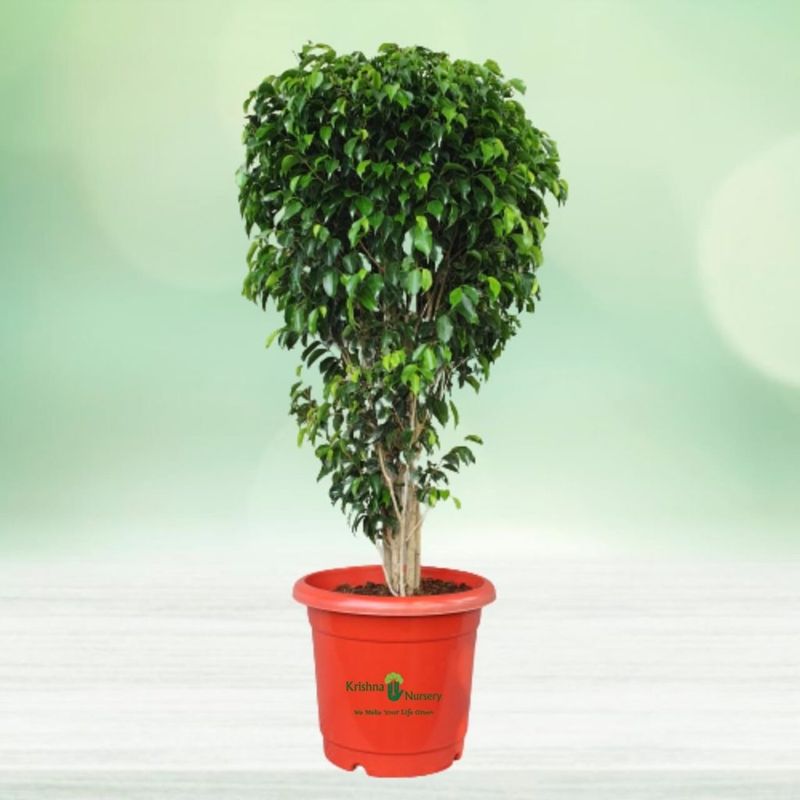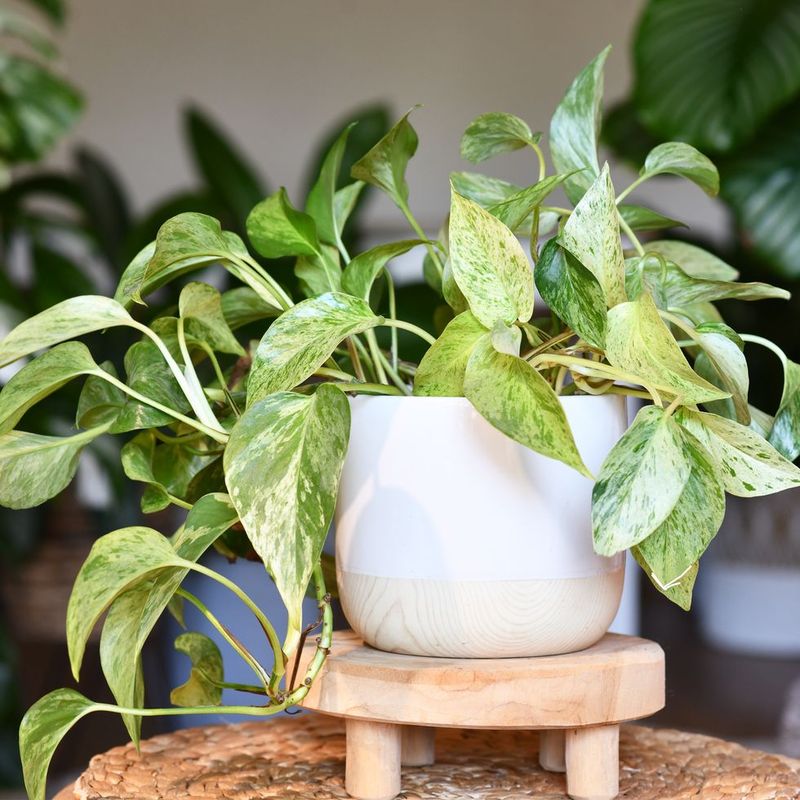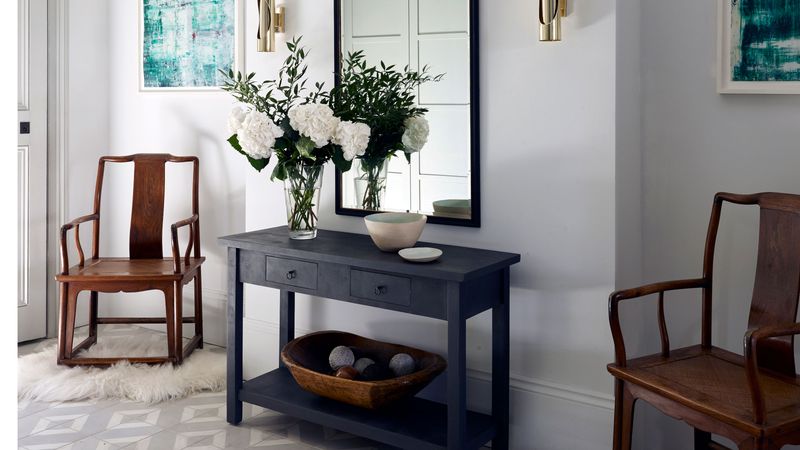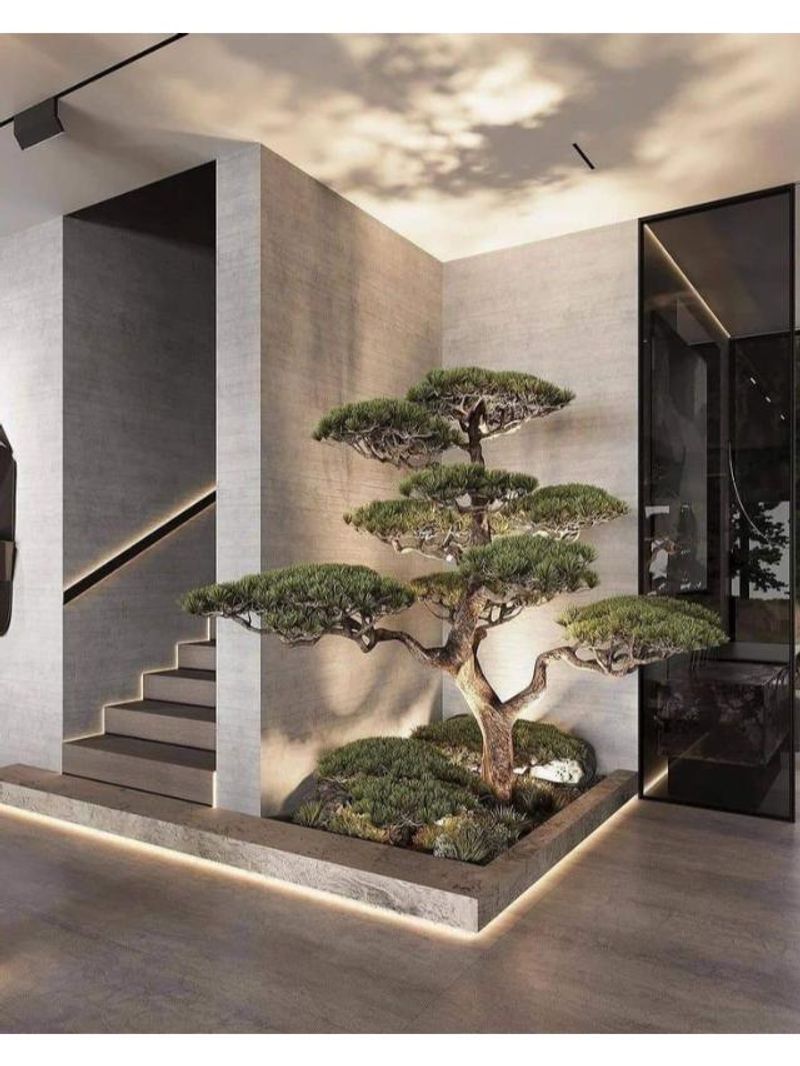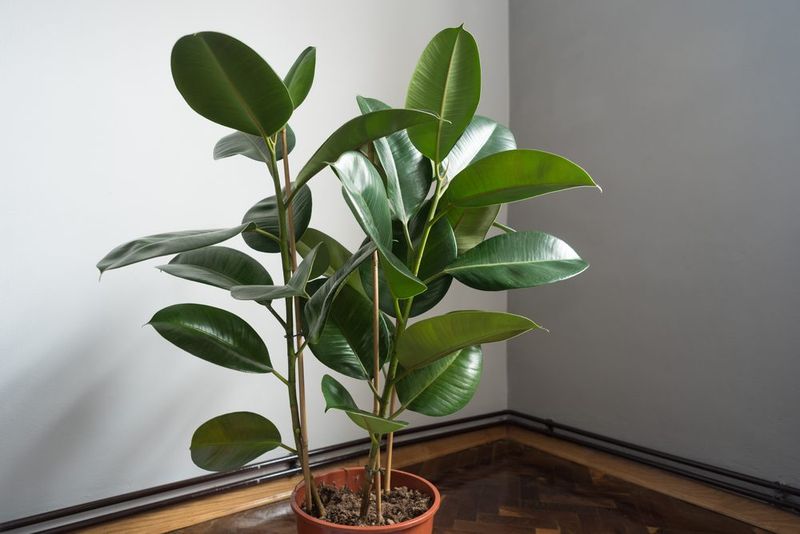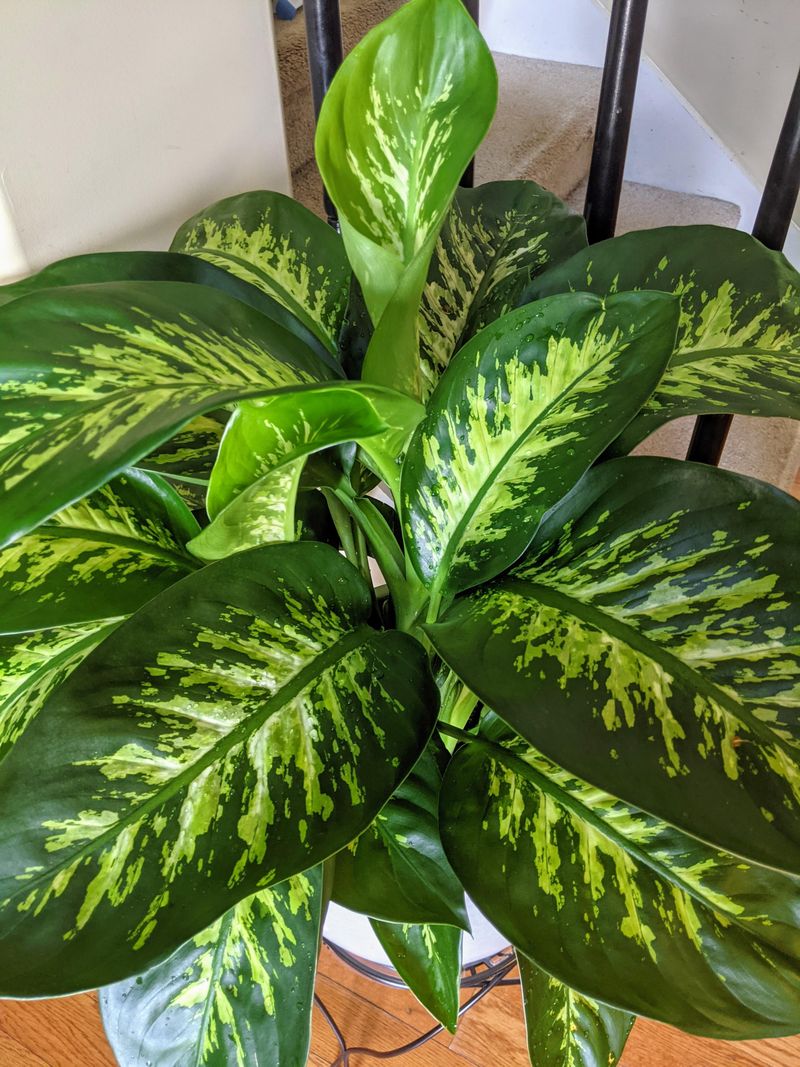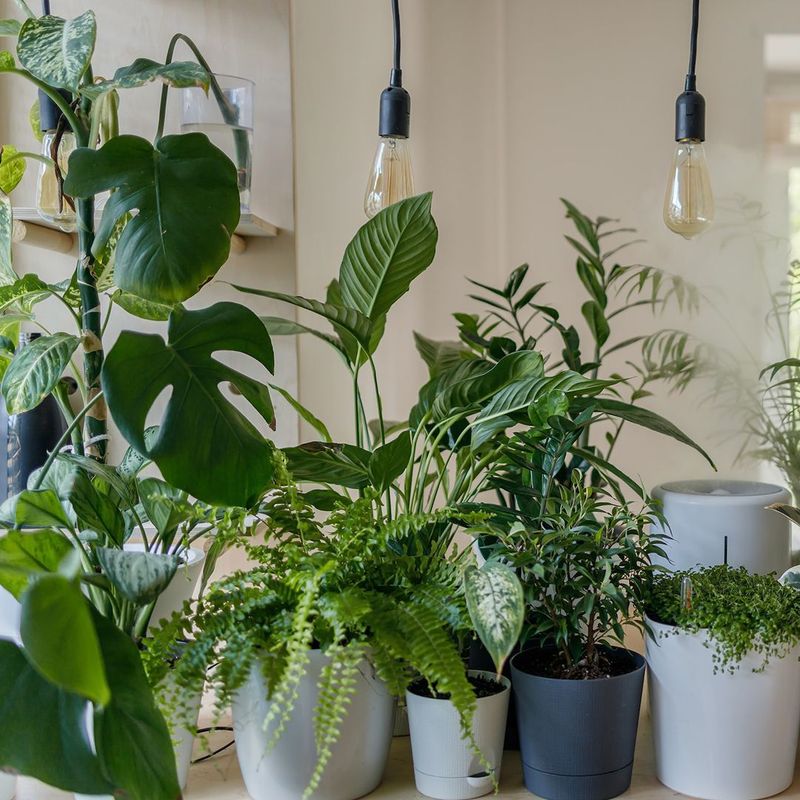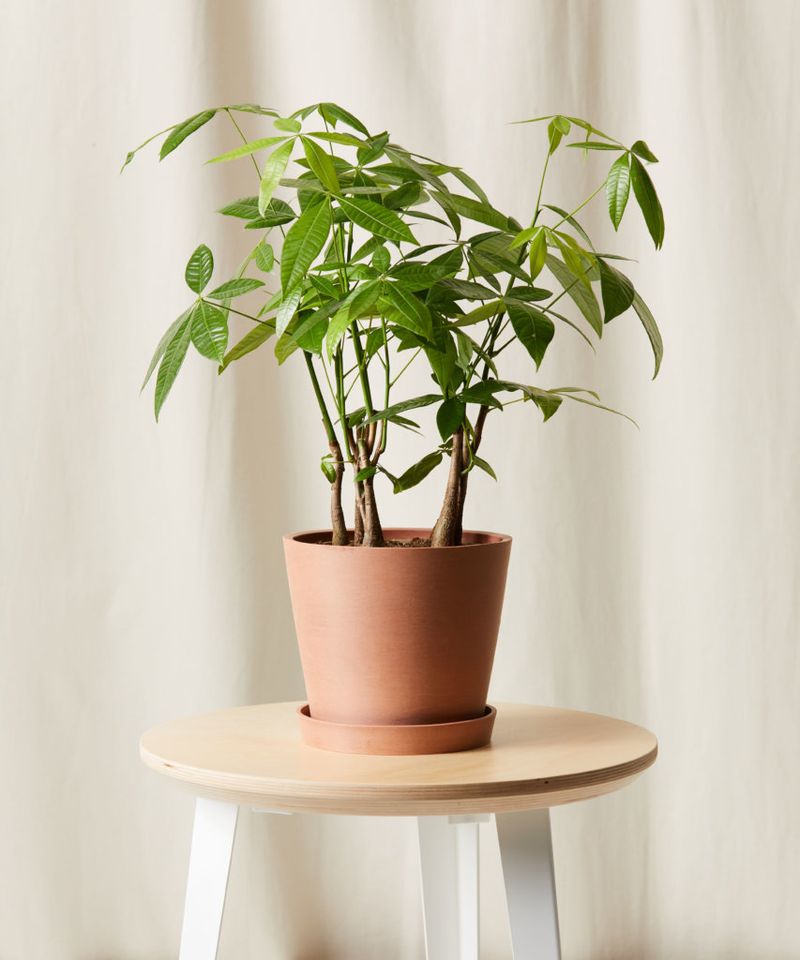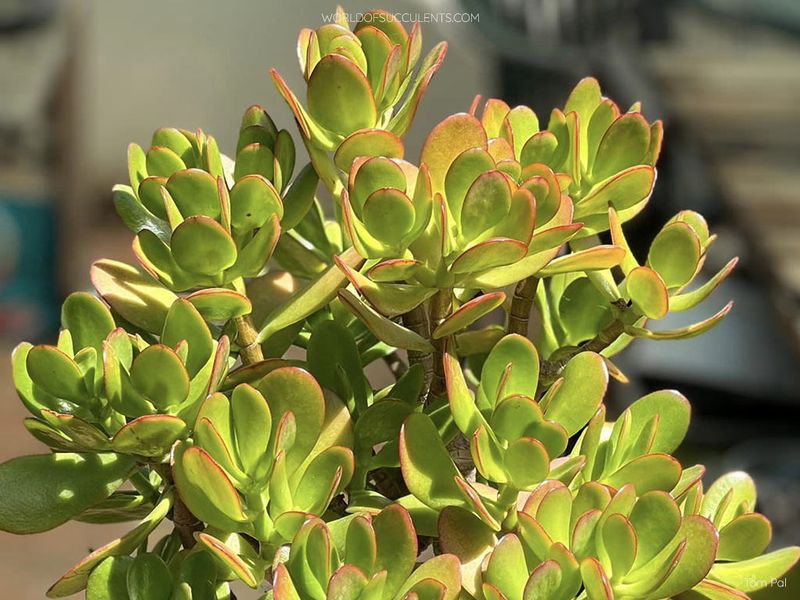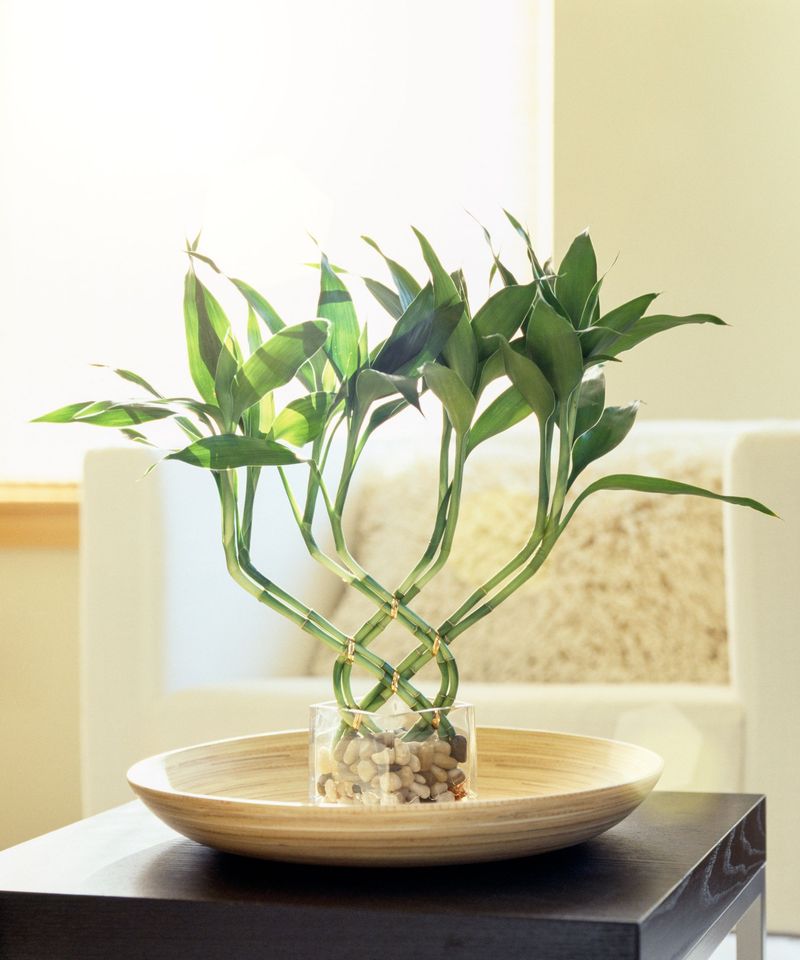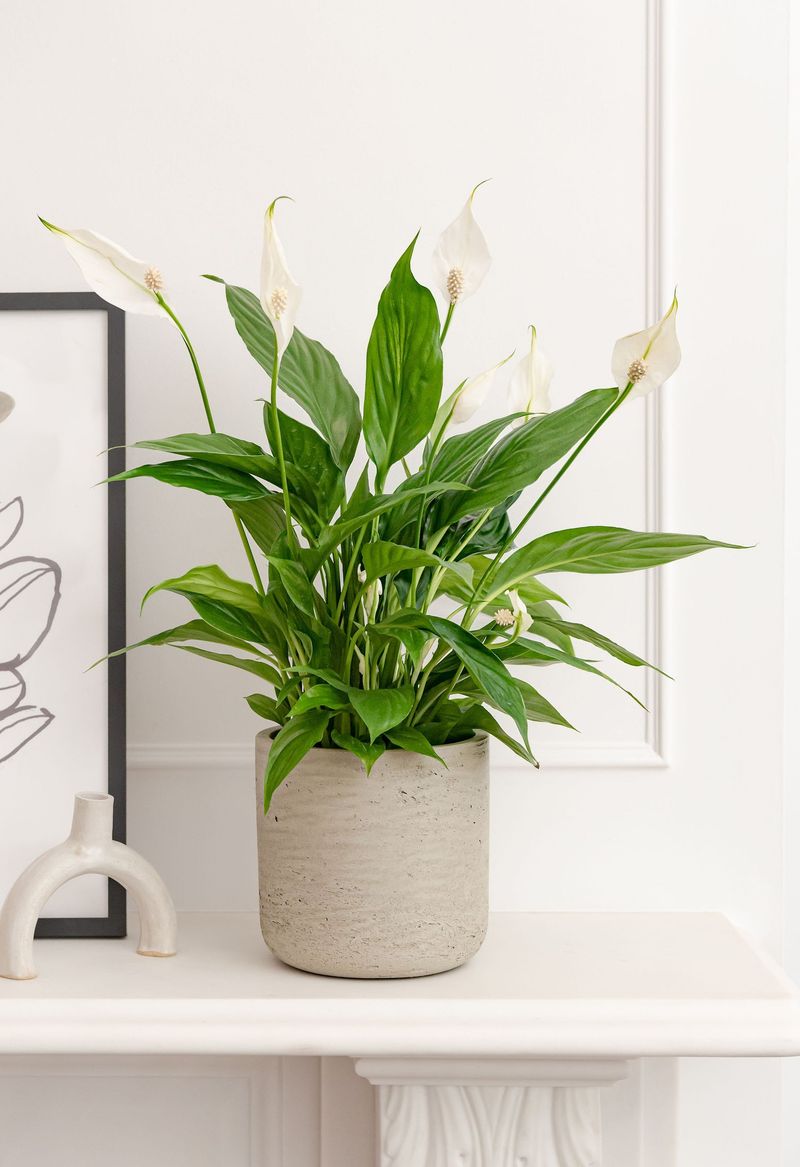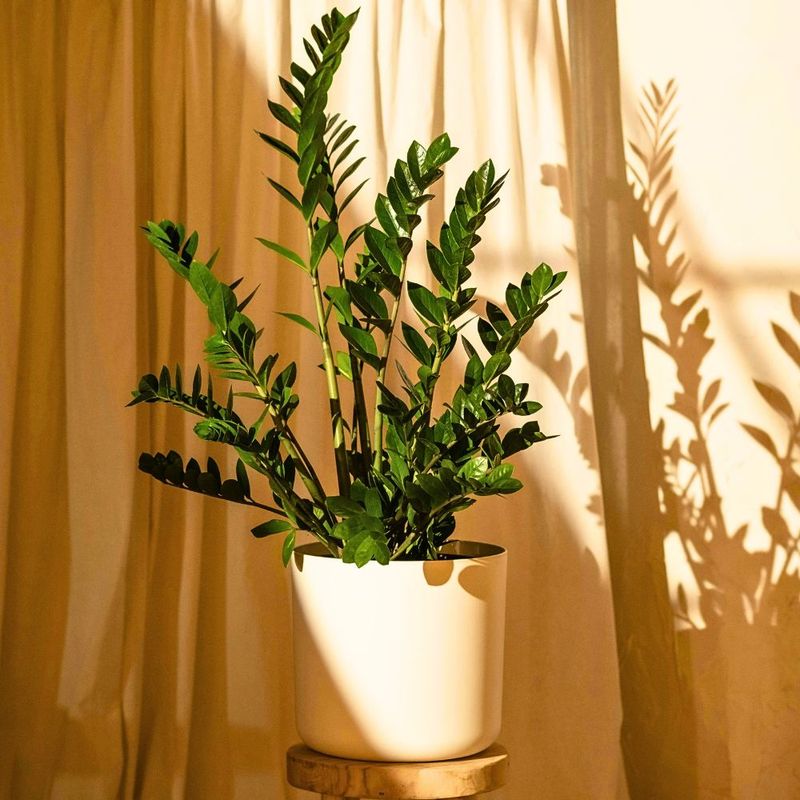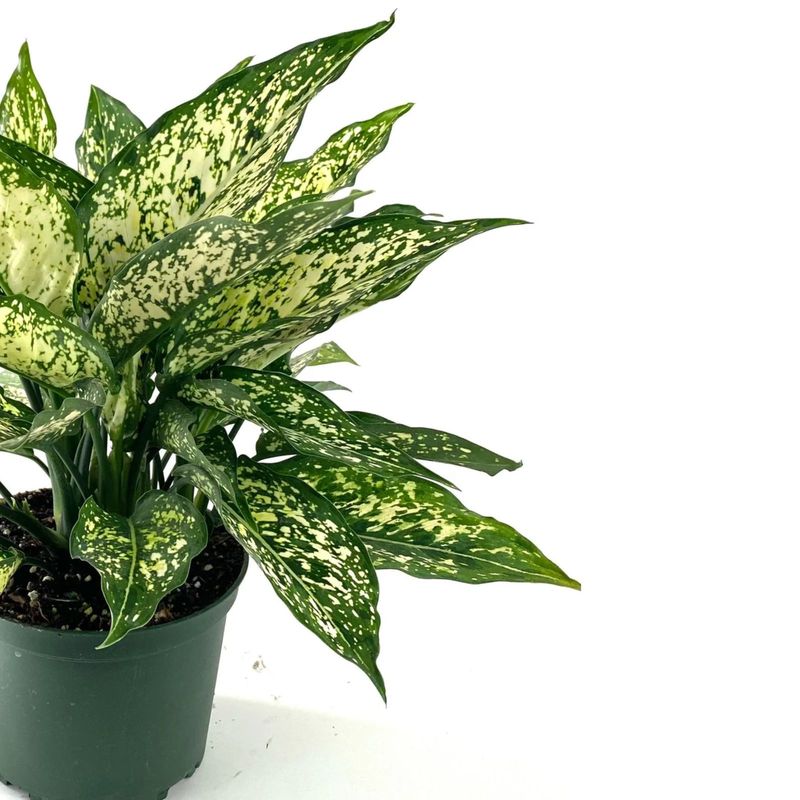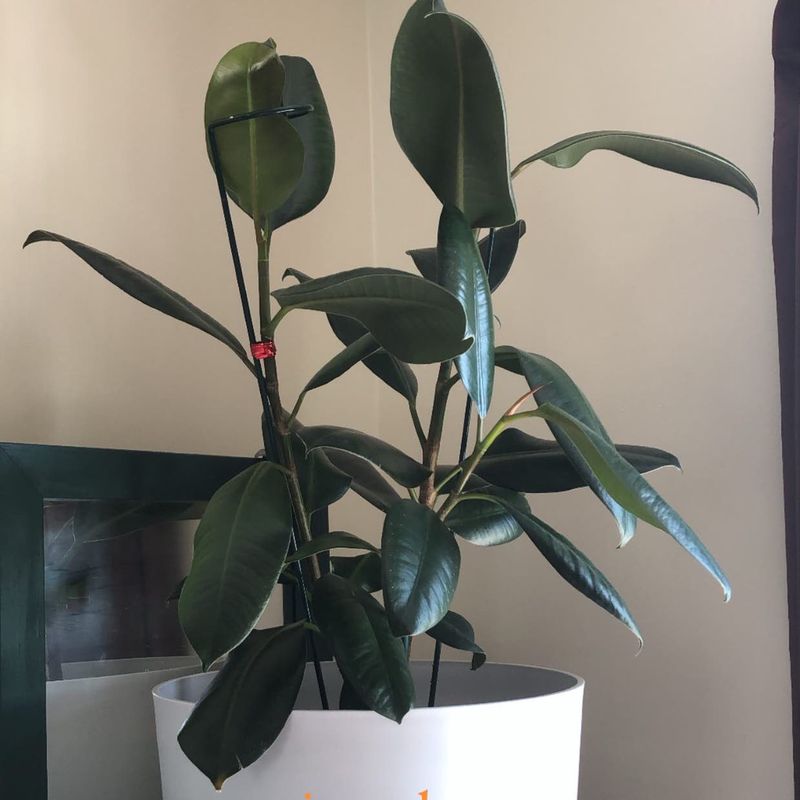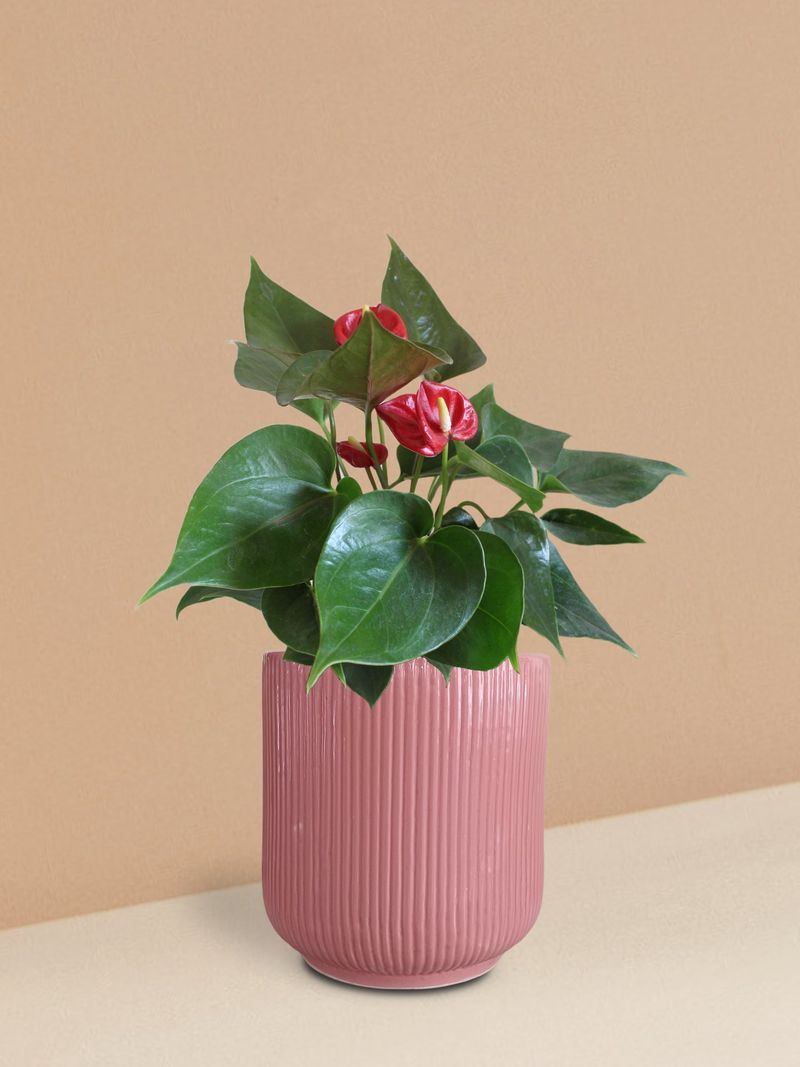Your entryway sets the tone for your entire home – and according to Feng Shui and interior designers, the houseplants you place there can make a surprising impact.
While greenery is often seen as a welcome touch, not all plants bring the kind of energy or aesthetic harmony that’s ideal for this high-traffic zone. In fact, some may block good vibes or simply throw off the visual flow.
Ready to find out which plants are best left out of your foyer – and which ones actually enhance the space? Here’s what the experts recommend for a balanced, beautiful welcome.
1. Spiky Cacti and Thorny Plants
Nothing says “keep out” quite like a collection of spiky cacti greeting your guests! According to feng shui practitioners, these prickly plants emit defensive energy that can make visitors feel unwelcome and block positive chi from flowing into your home.
Interior designers point out the practical problems too – in tight entryway spaces, these plants pose a genuine hazard as people brush past with coats and bags. The sharp points symbolize negative energy and conflict in feng shui philosophy.
2. Weeping Fig (Ficus benjamina)
Ever noticed how the Weeping Fig earned its melancholy name? Those elegantly drooping branches might look sophisticated, but feng shui experts consider downward-growing plants to be energy drainers in entryways, potentially bringing down the mood of everyone who enters.
Beyond energy concerns, these temperamental trees are notorious for dropping leaves when exposed to drafts—something entryways experience constantly with opening doors. The falling leaves create both physical mess and symbolic decline.
3. Trailing Ivy and Climbing Plants
While they might create a whimsical forest-cottage vibe elsewhere, trailing plants like ivy represent entanglement in feng shui practice. Placed in your entryway, these clingy vines symbolically prevent opportunities from entering your life and can create a sense of being trapped or held back.
From a practical standpoint, interior designers caution that hanging or climbing plants in entryways often end up snagging on clothing, hair, or bags as people move through the space. The constant maintenance of trimming back tendrils also becomes a chore.
Their invasive growing habits mirror how they can visually overwhelm an entrance space that should feel open and welcoming.
4. Dying or Struggling Plants
Imagine walking into someone’s home and immediately seeing a sad, yellowing plant gasping its last breath! According to feng shui masters, struggling plants in entryways broadcast decline and neglect to everyone who enters, setting a tone of deterioration rather than growth.
The symbolism couldn’t be clearer – dying plants represent fading energy and missed opportunities. Interior designers emphasize that entryways should showcase your best foot forward, not your gardening failures.
5. Bonsai Trees
Don’t let their charm fool you! These meticulously pruned trees may be artistic marvels, but feng shui principles warn against their stunted growth energy in entryways. The constant trimming and restriction represents limitations and constraints – not the expansive welcome you want for your home’s entrance.
Professional designers highlight their high-maintenance nature as problematic for busy entryways. Most bonsai require specific light conditions, regular watering, and careful attention that make them impractical for transitional spaces where they’re easily forgotten.
Their delicate branches can also appear fragile and vulnerable – symbolically suggesting weakness right where you want to project strength and protection.
6. Large-Leafed Plants in Small Entryways
Have you ever tried squeezing past a monstera deliciosa while carrying groceries? Oversized leaves from statement plants like elephant ears, fiddle leaf figs, or monster monsteras create physical obstacles in compact entryways, turning your grand entrance into an awkward jungle navigation.
Interior designers frequently see this mistake when homeowners try to make dramatic statements in limited spaces. The proportional mismatch creates visual clutter and spatial imbalance rather than harmony.
Feng shui practitioners warn that these large-leafed varieties can also block the flow of chi energy, preventing good fortune from properly entering your home and creating stagnation where movement should be encouraged.
7. Toxic Varieties Near Children and Pets
That elegant lily might look sophisticated by your front door, but it could send your curious cat straight to the emergency vet! Common houseplants like peace lilies, philodendrons, and pothos contain calcium oxalate crystals that are toxic when ingested, creating a dangerous welcome for furry friends and little humans.
Entryways see the most traffic in homes, making them particularly risky locations for toxic varieties. Children returning from school or pets greeting visitors may encounter these plants before you can supervise their interaction.
8. Plants That Drop Debris or Have Strong Scents
Coming home to a shower of palm fronds or eucalyptus leaves might not be the welcome you imagined! Plants that regularly shed leaves, flowers, or pollen create maintenance headaches in entryways, where first impressions matter most.
Strongly scented plants like jasmine or gardenia can overwhelm sensitive visitors and create an olfactory assault rather than a gentle greeting. Feng shui practitioners caution that overpowering scents disrupt the balanced energy needed in transitional spaces.
Interior designers point out the practical issues too – fallen debris can be tracked throughout your home, creating cleaning challenges far beyond the entryway itself.
1. Money Tree (Pachira Aquatica)
The braided trunk of a Money Tree symbolizes locked-in fortune, making it a powerhouse for attracting abundance through your front door.
Feng shui masters recommend placing this prosperity symbol in the southeast corner of your entryway to maximize financial energy. The five-lobed leaves represent the five elements of feng shui: wood, fire, earth, metal, and water.
Interior designers love how its sculptural form creates vertical interest in small spaces without overwhelming the area. A Money Tree thrives in bright, indirect light and moderate humidity – perfect conditions for most entryways.
2. Jade Plant (Crassula Ovata)
Nicknamed the ‘friendship tree’ in some cultures, this succulent powerhouse does double duty as both a stunning decor piece and a symbol of prosperity. Its coin-shaped leaves supposedly attract wealth when positioned near your home’s entrance.
Unlike fussier houseplants, jade thrives on neglect – perfect for busy homeowners who forget to water regularly. The glossy, plump leaves store water efficiently, requiring minimal attention while maintaining their vibrant appearance.
3. Lucky Bamboo (Dracaena Sanderiana)
Not actually bamboo at all, this resilient Dracaena species has become synonymous with good fortune in feng shui practice. The number of stalks determines which blessing you’re inviting in – three stalks for happiness, five for wealth, and seven for health.
Lucky bamboo thrives in water alone, eliminating soil mess in your pristine entryway. Its vertical growth creates dynamic energy without taking up precious floor space, making it ideal for narrow hallways or small console tables.
4. Peace Lily (Spathiphyllum)
With its dramatic white blooms rising above lush green foliage, the Peace Lily creates an immediate statement of tranquility.
Feng shui practitioners prize the Peace Lily for its ability to harmonize spaces with gentle feminine energy. The elegant white flowers are said to collect and neutralize negative chi, transforming your entryway into a cleansing transition zone between the outside world and your sanctuary.
5. ZZ Plant (Zamioculcas Zamiifolia)
The ZZ plant’s glossy, almost artificial-looking foliage brings a touch of futuristic elegance to modern entryways. Its reputation as virtually indestructible makes it the perfect choice for plant beginners or busy households where regular care isn’t guaranteed.
It’s appreciated for its ability to thrive in challenging conditions, symbolizing resilience and adaptability. The upward-growing stems represent prosperity and growth, while the deep green color signifies wealth and renewal.
An added bonus: these plants can go weeks without water, perfect for frequent travelers.
6. Chinese Evergreen (Aglaonema)
Considered one of the luckiest plants in Chinese tradition, the Aglaonema’s varied leaf patterns range from speckled cream to vibrant pink, offering something for every design aesthetic. Its compact growth habit makes it perfect for entryway console tables or shelving units.
Feng shui experts value this plant for its ability to cleanse spaces of negative energy while promoting feelings of vitality and well-being. The varied leaf patterns are said to represent diversity and abundance flowing into your home.
The plant’s slow growth means it won’t quickly outgrow its designated space, requiring minimal maintenance.
7. Rubber Plant (Ficus Elastica)
Standing tall with dramatic burgundy-green leaves, the Rubber Plant commands attention while filtering air and absorbing noise – perfect for buffering street sounds in urban entryways.
Ancient feng shui texts reference this plant’s protective qualities and ability to ward off negative energies. The plant’s latex sap was traditionally believed to seal in good fortune.
Interior designers appreciate how the Rubber Plant’s architectural form creates instant drama without fussy maintenance. Position in bright, indirect light for optimal growth, and dust leaves occasionally to maintain their glossy sheen and maximized energy absorption abilities.
8. Anthurium (Flamingo Flower)
With heart-shaped blooms in vibrant red, pink, or white, Anthuriums inject instant passion and energy into your entryway. Feng shui experts consider these dramatic flowers powerful activators of the fire element, stimulating creativity and bold action right at your threshold.
The plant’s glossy, reflective leaves are said to deflect negative energy while its upward-facing flowers invite prosperity to flow upward. In Hawaiian culture, Anthuriums represent hospitality – the perfect symbolic message for your home’s entrance.
